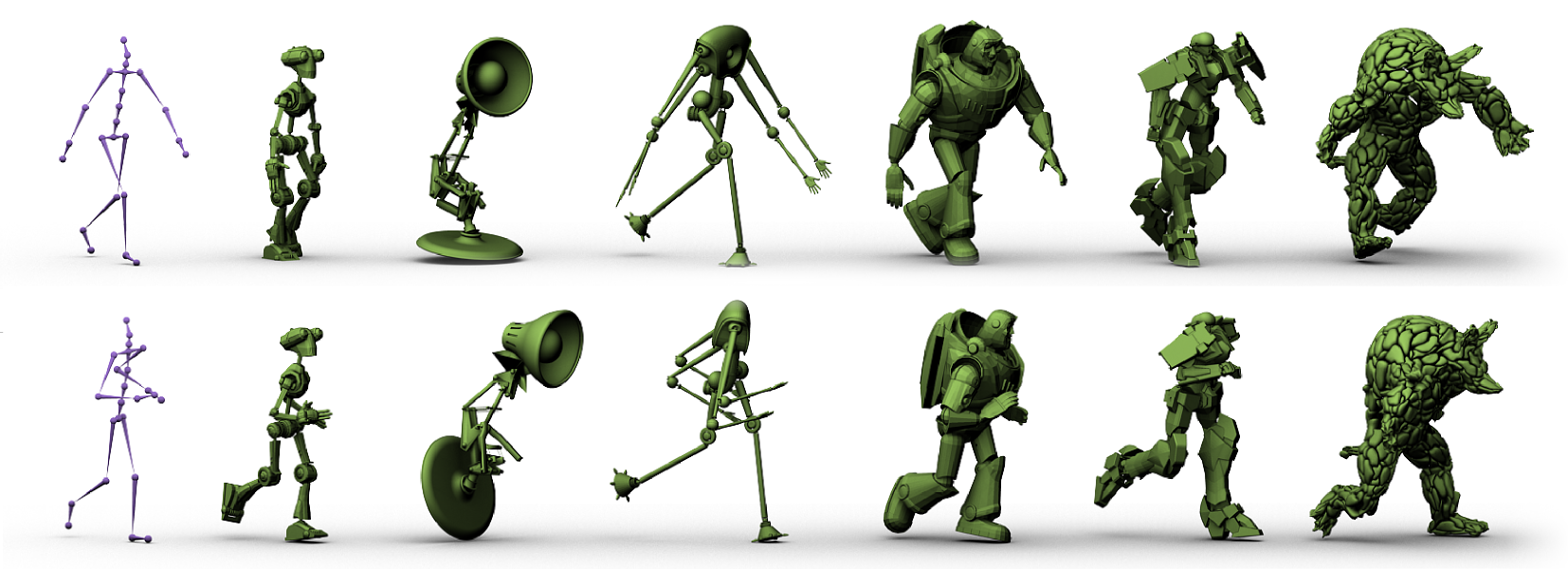Abstract
Rigging an arbitrary 3D character by creating an animation skeleton is a time-consuming
process even for experienced animators. In this paper, we present an algorithm that
automatically creates animation rigs for multicomponent 3D models, as they are typically
found in online shape databases. Our algorithm takes as input a multi-component
model and an input animation skeleton with associated motion data. It then creates
a target skeleton for the input model, calculates the rigid skinning weights, and
a mapping between the joints of the target skeleton and the input animation skeleton.
The automatic approach does not need additional semantic information, such as component
labels or user-provided correspondences, and succeeds on a wide range of models
where the number of components is significantly different. It implicitly handles
large scale and proportional differences between input and target skeletons and
can deal with certain morphological differences, e.g., if input and target have
different numbers of limbs. The output of our algorithm can be directly used in
a retargeting system to create a plausible animated character.
|
